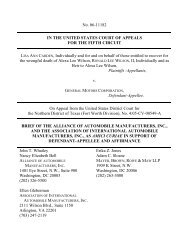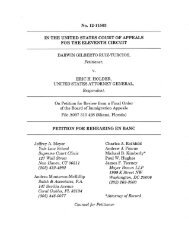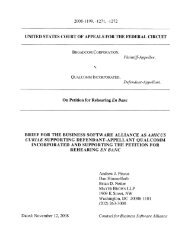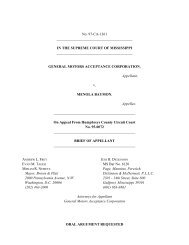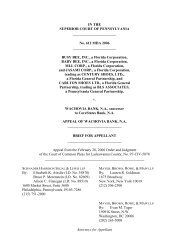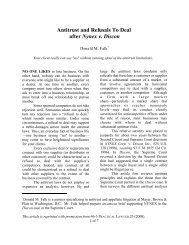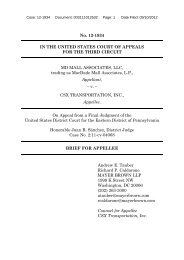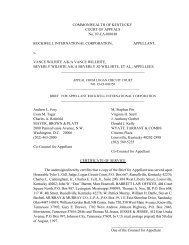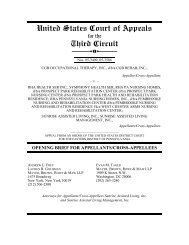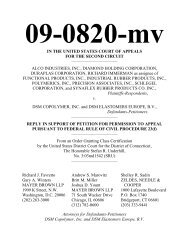No. 5-99-0830 IN THE APPELLATE COURT OF ... - Appellate.net
No. 5-99-0830 IN THE APPELLATE COURT OF ... - Appellate.net
No. 5-99-0830 IN THE APPELLATE COURT OF ... - Appellate.net
Create successful ePaper yourself
Turn your PDF publications into a flip-book with our unique Google optimized e-Paper software.
Even if the court had been right in concluding that the quality of non-OEM parts could be<br />
litigated on a classwide basis through common proof (which it was not), its decision to<br />
ignore or eliminate all individual issues and to proceed directly to a damages verdict was<br />
based on a fundamental misunderstanding of proper class action procedure.<br />
In its class certification ruling, the circuit court stated that “the inability of some<br />
members of the class to obtain relief due to particular factors unique to them, is to be<br />
resolved at trial and does not impair certification of the class.” A. 27 (emphasis added).<br />
This statement is exactly backwards: in Slimack, this Court explained that “questions that<br />
may be peculiar to individual [class] members” must be adjudicated “in an ancillary<br />
proceeding or proceedings” — not at the “common issues” trial. Slimack, 227 Ill.App.3d at<br />
293. Furthermore, if there is no way to efficiently manage the adjudication of the remaining<br />
individual issues through subclasses, the proper remedy is to decertify the class. Id. See<br />
also McCabe, 75 Ill.2d at 468-69 (a class action is not appropriate when, even after<br />
adjudication of common issues, the court would still have to make individual factual<br />
determinations as to each class member).<br />
In this case, even if the jury could have properly decided that non-OEM parts were<br />
inherently inferior to OEM parts, that would only be the beginning — not the end — of the<br />
inquiry. Ancillary proceedings would still be needed to determine, on an individual basis,<br />
which vehicles had non-OEM parts installed, whether or not a particular part that was<br />
actually installed failed to restore the vehicle to its particular pre-loss condition, whether<br />
State Farm had affirmative defenses to particular claims, and whether and how much any<br />
individual class member had been damaged by any claimed breach of contract. Depriving<br />
-53-



